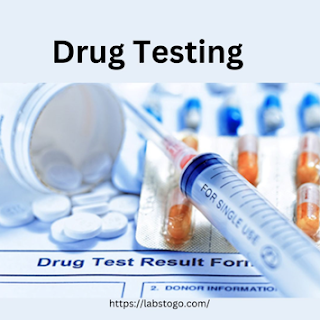Breaking Down the Stigma: The Importance of Getting Tested for STDs in Every Nation
Sexually transmitted diseases (STDs) are a global health issue that affects millions of people every year. Despite this, there is still a stigma surrounding getting tested for STDs in many nations. In this blog post, we will explore the importance of breaking down this stigma and why it is crucial for everyone to get tested for STDs, no matter where they live. Join us as we delve into the facts, myths, and misconceptions surrounding STD testing and learn how we can all play a role in promoting sexual health worldwide.
Prevalence of STDs in developed and developing nations
Sexually transmitted diseases (STDs) are a global health concern, affecting people of all ages, genders, and socioeconomic backgrounds. However, the prevalence of STDs varies significantly between developed and developing nations.
In developed countries such as the United States, Australia, and Japan, there has been a significant decrease in the overall prevalence of STDs over the past few decades. This can be attributed to improved access to comprehensive sexual education, effective contraception methods, and increased awareness about safe sex practices. For instance, according to the Centers for Disease Control and Prevention (CDC), the rate of reported cases of chlamydia in the US decreased by 8% from 2017 to 2018.
However, despite these improvements, STDs continue to be a major public health issue in developed nations. In fact, according to data from the World Health Organization (WHO), an estimated one million people acquire a sexually transmitted infection every day worldwide. In developed countries with high rates of immigration or tourism such as Canada and France, there is also an increase in imported cases of STDs.
On the other hand, developing nations face unique challenges when it comes to dealing with STDs. These include limited access to sexual healthcare services due to poverty and inadequate infrastructure; lack of comprehensive sexual education; cultural norms that discourage discussions about sex; and gender inequality that puts women at higher risk of acquiring STDs.
As a result, developing countries often have higher rates of certain STDs compared to developed nations. For example, sub-Saharan Africa accounts for almost half (45%) of all new HIV infections globally despite only representing around 13% of the world's population.
Furthermore,the stigma surrounding sex and STDs is more prevalent in developing nations compared to their developed counterparts. This stigma can prevent individuals from seeking testing or treatment for fear of judgment or discrimination within their communities.
It is essential for both individuals and governments in both developed and developing nations to address the issue of STDs. This includes promoting comprehensive sexual education, increasing access to healthcare services, and reducing stigma around sex and STDs.
Regardless of where you live, getting tested for STDs is crucial in preventing the spread of infections and ensuring your own sexual health. Remember that STD testing is confidential, and there are resources available for those who may need financial assistance. By breaking down the stigma surrounding STDs and encouraging regular testing, we can work towards a world with significantly reduced rates of sexually transmitted diseases.
Conclusion: Encouraging everyone to get tested for the betterment of their
It is also worth noting that many countries offer free or low-cost STD testing services through government programs or non-profit organizations. There are often no age restrictions for these services either, making it accessible for young adults who may not have access to healthcare through traditional means.
Breaking down the stigma surrounding STD testing is crucial in ensuring better sexual health outcomes for all individuals. By encouraging everyone to get tested, we can prevent the spread of infections, promote responsible sexual behavior, and detect and treat any STDs early on. Let us all take charge of our sexual health and work towards a world where getting tested is a normal part of our healthcare routine.




Comments
Post a Comment